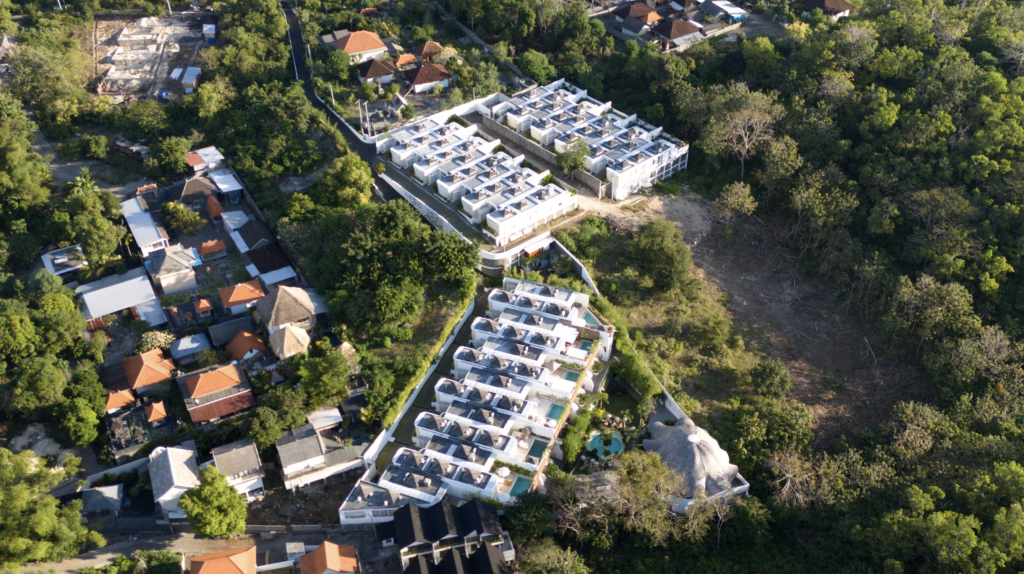The Bali short-term rental market is awash with short-term rentals—and it’s not slowing down. More developments, more supply, and increasingly complex choices face every owner and investor. Hey! I’m Jason, a Business Journalist at Bukit Vista, I’ll be unpacking analysis from Bali Business Review by Jing Cho Yang. Today, we’ll cut through the abundance of hype and uncertainty to help you make clear-headed, data-driven decisions in this crowded landscape.
The Surging for Bali Short-Term Rental Supply and What It Means for the Market

The Bali short-term rental scene is exploding, and the brakes are nowhere in sight. Every few months, fresh developments hit the marketplace, swelling the pool of available villas and apartments. It’s not just a trickle—it’s a flood, as numerous construction projects are set to finish soon, promising even more competition for bookings and market share.
For investors and property owners, this means the old “build it and they will come” mentality is growing riskier. More properties competing for attention inevitably means downward pressure on pricing, tougher reviews, and tighter margins—especially for those without a sound strategy. To keep up, you need to think past easy wins and start planning with realistic, data-driven goals.
Qualify Your Information—Don’t Trust Every Seller or Developer
Too many investors fall for advice given by people with something to gain. Jing candidly highlights that developers or sellers, by default, are motivated to maximize their cash return—not your ROI. Their claims of high returns or easy occupancy are rarely neutral and often omit the stresses and pitfalls they face even before launching a project—like regulatory risk, cash flow issues, and buyer sentiment.
To be a wise investor in Bali’s market, you have to question these perspectives and do the legwork yourself. That means vetting figures, double-checking claims, and seeking data beyond glossy brochures. Don’t be passive or trust oversimplified sales talk; recognizing the seller’s incentives helps you filter reality from sales tactics.
Ask Better Questions—Annual Returns, Not Just Daily Rates
For Bali short-term rental, old fundamentals like “Where will my guests come from?” or “What’s the ADR?” don’t hold water in today’s global marketplace. Platforms like Airbnb and Booking.com have made guest origins irrelevant; your property will be seen worldwide the moment you go online. Similarly, the obsession with average daily rate is misleading—rates are volatile, changing by week, season, or even specific event.
A stronger way to assess value of Bali short-term rental is by zooming out: ask, “What’s my expected annual return?” and analyze your purchase price over the entire contract period. This approach balances out extreme highs and lows, leading to greater financial stability and a better handle on what you can truly expect from your property year to year, instead of being whiplashed by seasonal dips and spikes.
Don’t Fall for Hearsay—Get to the Source and Use the Right Tools
Too often, buyers make decisions fuelled by anecdotes—be it from friendly drivers, dinner acquaintances, or viral internet tales. In Bali short-term rental, unlike places with an MLS, verifiable transaction data is hard to come by, making it tempting to accept stories as fact. But Jing’s advice is clear: ignore the buzz and verify with source information whenever possible.
Today’s AI and digital tools make this easier. Use ChatGPT, Google Translate, and official go.id government websites to read and interpret actual Indonesian policy releases. This not only helps you bypass intermediaries but shields you from sensational media twists. Direct source data will always serve your decision-making better than hearsay and rumor.
Bali’s short-term rental arena is more competitive than ever before, but smart, evidence-driven decisions are still possible. Ignore the hype, qualify every bit of information, ask the right questions, seek source data, and plan for the long term. In a landscape of oversupply and shifting fortunes, your edge is discipline and facts—not hearsay, haste, or headlines. Refining your strategy today sets you up for sustainable success as the market matures.
🗒️ Read the transcript
🗂️ Topic 1: The Short-Term Rental Surge and Market Dynamics
Selamat pagi! The short-term rental market in Bali is buzzing and the pace isn’t slowing. There are more properties coming to completion—new supply is about to hit the market in the next three to six months. Investors and owners must realize that the market’s brakes are off and proliferation will continue. We’ve already discussed in past videos how this abundance came to be, but the real question is how do you navigate and stay resilient amid so much competition?
🗂️ Topic 2: The Power of Asking the Right Questions and Verifying Sources
If you want to enter or exit Bali’s short-term market wisely, you have to be critical about where you get your information. Too many buyers get lazy—trusting developers, agents, or anyone with a conflict of interest. Developers, by nature, are more interested in maximizing their own exit price than your ROI as a buyer. In Bali, developing is risky; the cycle is full of anxiety, balancing risk from land acquisition, permits, to finally bringing a product to market.
🗂️ Topic 3: Why Classic Investment Questions are Outdated
Don’t ask developers or sellers old-school questions like “Where will the guests come from?” or “What’s the average daily rate?” That model is outdated in the age of platforms. Your audience is global and online the moment your listing is live. “Average daily rates” are nearly meaningless because pricing changes from day to day, week to week, by location and season. You should be thinking in annual terms—what’s my total potential yearly return for the contract period?
🗂️ Topic 4: Avoiding Anecdotes and Seeking Source Data
Many people make investment moves based merely on what they heard at a bar, from a friend, or some viral story on social media. In Indonesia, unlike the West, there’s no centralized, transparent MLS for property transactions. Instead, you must seek official government information directly—look for go.id sources, use Google Translate to interpret regulations or releases, and avoid being buffered by someone else’s interpretation. Validate sensational news with primary source documents, not just catchy headlines.
🗂️ Topic 5: Market Realities and Long-Term Strategy
If you entered the market at too high a price, don’t panic and rush to sell—currently there are nearly 19,000 properties publicly for sale and that number’s still climbing. Panic-selling in a buyer’s market is rarely wise. Play the long game: treat your property as a business, allow time for a sound exit, and learn to leverage data and careful strategy for your next move.
Take the First Step to Joining Our Community, Book Your Seat at Our Round Table Talk Today!
At Bukit Vista, we believe in creating lasting partnerships that help nagivate your property to the top 1% in this competitive season. Join us to discover how we can work together.

